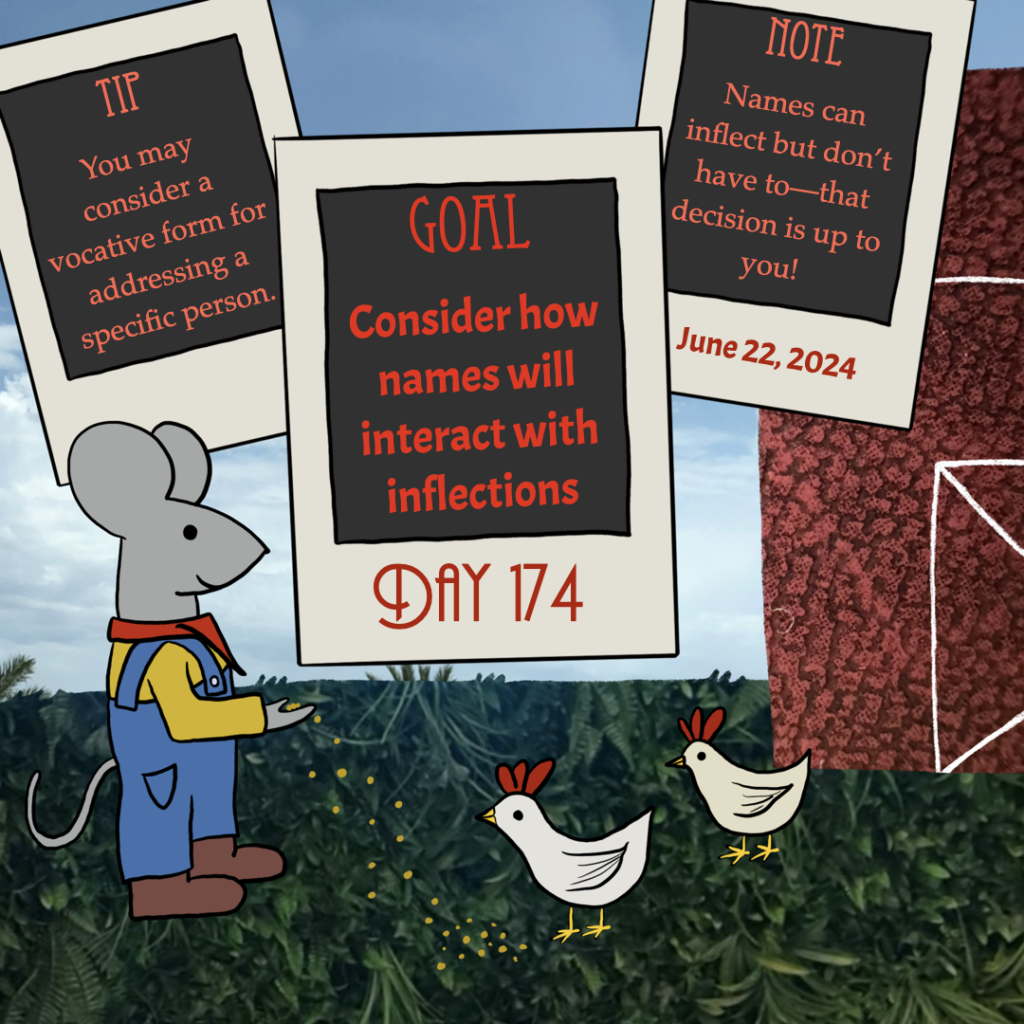
Goal: Consider how names will interact with inflections
Note: Names can inflect but don’t have to—that decision is up to you!
Tip: You may consider a vocative form for addressing a specific person.
Work focus: Organize/Plan/Structure
Now that you have some names (both personal and place names) in your language, your next decision is how those names interact with inflections. For instance, if your language marks cases, a person’s name may shift forms as it is used as a subject or object in a clause. In the same way, a place name may shift forms as it is used as a subject or locative in a clause.
You may also consider having a special form for a vocative. Vocative forms are on the edge of case-marking (often not considered a case by linguists, yet often listed as an inflection alongside cases in grammars)—they mark the addressee of a clause. If ko- is a prefix marking the vocative, and I am addressing someone named Milo, then I would need to use the form Komilo when speaking to Milo or trying to get their attention. It’s like using “O” in archaic English (e.g. “O Milo, where is the food?”).
As you make your decisions, remember that, even if you have case-marking inflections, you don’t necessarily need to make the names participate in them. Place names may take locative inflections while personal names may be more resistant to case-marking. Do what feels best for your system.
